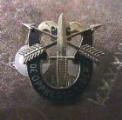Abstract
This book is a field guide for waging a strategic nonviolent struggle – it offers a rich and diverse array of practical information that nonviolent activists need to know. The user-friendly format of the book complements the presentation of the content in thematic chapters, which are organized around answering key questions that range from techniques of daily management to strategic planning. Written by those who successfully fought against repressive regimes using strategic nonviolent action, the book is designed as a ready-to-use tool for front-line practitioners who work in nondemocratic, and sometimes violent environments, as well as those who work in established democracies. It is based on firsthand experience from the struggles in Serbia and Georgia, and the lessons learned in Ukraine, Belarus, Zimbabwe and other countries.
The book fills the gap between the tremendous theoretical insights about strategic nonviolent conflict developed by scholars over the past several decades and the accumulated experience of front-line practitioners. This is achieved by creating a synergy between, on the one hand, academic knowledge and the expertise of authors and of outside participants in the project, and, on the other hand, the lived experience of successful activists and leaders. Likewise, the book's content and format build a bridge between the strategic level and the often "heavy" book design of theoretical works, and the "cook-book" approach of existing manuals for political and public-interest campaigns, which mostly focus on tactical issues.
The focus is firmly on practical questions. Crucial points about waging strategic nonviolent struggle appear as "how to" questions:
How do you plan symbolic public actions successfully with just a few supports?
How do you recruit, train, and retain pro-reform activists?
How do you manage scarce assets, such as volunteers and material resources?
How do you plan your campaign and run it with constant feedback-loop management?
How do you prepare to overcome the powerful influence of fear?
How do you minimize the effectiveness of repressive mechanisms, including contaminants, surveillance and police repression?
From this book, those considering launching a strategic nonviolent struggle in any environment will find enough information to steer away from making the most common mistakes and refocus towards selecting realistic objectives, structuring an organization efficiently, and effectively influencing public attitudes to the point where ordinary citizens are willing to participate in the struggle.
The topics covered include the theory of political power, fundamentals of strategic and detailed tactical planning, message development and management of nonviolent actions and campaigns.
The book is compatible with already existing and readily available resources for use in this field, such as the writings from the Albert Einstein Institution and the new computer game, "A Force More Powerful".
In short, this book takes a strategic approach to the problems of day-to-day implementation of nonviolent struggle encountered by pro-reform movements in all environments, from those working for justice in established democracies to those working to end repression or occupation.






 Reply With Quote
Reply With Quote






Bookmarks